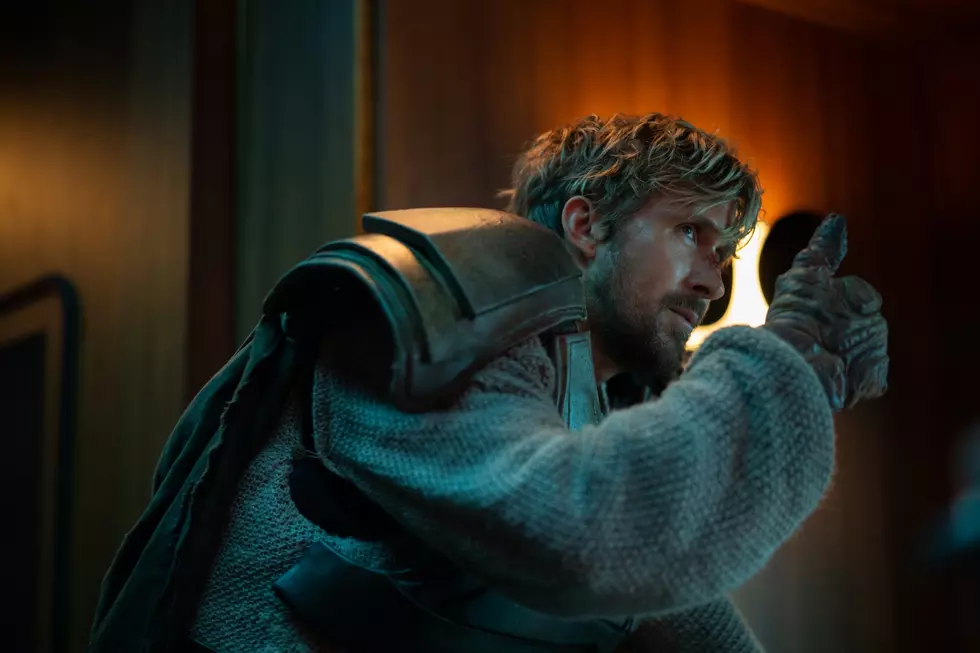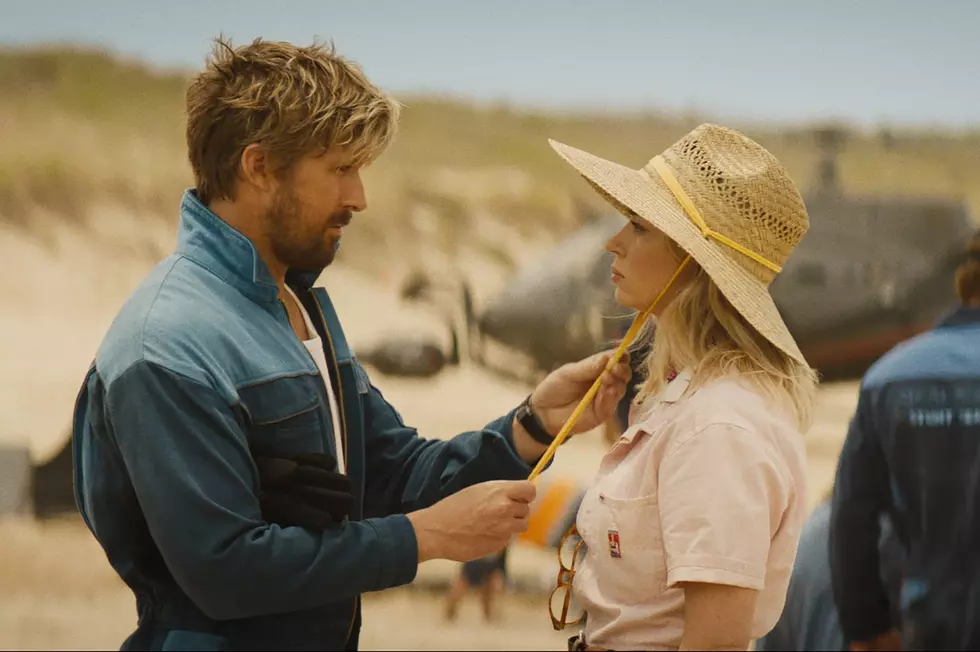
‘A Quiet Place’ Review: A Good Old-Fashioned Survival Thriller
It’s a tale as old as time: In a near future, not too far from our own, the few remaining survivors of some mysterious Earth-shattering incident have carved out a desperate, tenuous living while fighting to survive. There is something undeniably — and satisfyingly — old-fashioned about A Quiet Place; a thriller that examines our place in a society that no longer exists and what it means to be human in the face of monstrous terror. It’s also a knuckle-biting masterclass in escalating tension that establishes John Krasinski as a serious filmmaker capable of crafting one hell of an emotional thrill ride.
That’s somewhat surprising from an actor who previously directed the near-instantaneously forgotten The Hollars. Here, Krasinski takes a simple survival horror premise and elevates it to a poignant tale of dystopian terror. The artist formerly known as Jim Halpert plays a devoted husband and father, determined to build a good life for his wife (played by real-life spouse Emily Blunt) and children, played by Millicent Simmonds (of Wonderstruck), Noah Jupe (The Night Manager) and Cade Woodward.
We never hear the characters’ names — for good reason. In this not-too-distant horrific future, a mysterious breed of monster has wiped out most of the world’s population. The monsters, which look like a hybrid of the giant alien bugs in Starship Troopers and a Cloverfield creation, possess heightened hearing abilities and violently kill anything that makes a sound — all creatures, great and small (including, in a particularly stunning moment, a raccoon). And so Krasinski and his family live a largely soundless existence, tiptoeing in bare feet and communicating via sign language.
Having a hearing impaired daughter (Simmonds, who is deaf in real life) has given them a unique advantage; her weakness has become their strength. By the end of the film, that notion is amplified in ways that are both riveting and poignant beyond measure, with an exceptionally intense and surprisingly emotional third act. The success of that climax rests on a few things, not the least of which is a key moment early in A Quiet Place, when the family suffers a tragedy that is rendered literally unspeakable.
Then there’s the expected assortment of clever tricks that Krasinski and his family employ to survive, including excellent ways to distract the monsters should they ever come too close. But the cast is what truly make this film land in ways that it might not in other hands (like if producer Michael Bay had directed it instead); Krasinski, Blunt, Simmonds and Jupe give remarkably eloquent performances for a story that requires so much silence, underscored and punctuated by the legendary composer Marco Beltrami — whose score is evocative of classic Hitchcockian suspense.
As indicated by the trailers, the core crisis of the film is Blunt’s pregnancy and impending labor. She is a tragic figure, a dead woman walking; the very promise of life helplessly intertwined with the terror of death. It may seem completely idiotic for these people to get pregnant under the circumstances — you can’t put your finger to your lips in a shushing gesture and expect a newborn infant to comply.
But the intricacies of what it means to live have only become more complex in this harrowing new world, and her pregnancy isn’t a foolish play; it’s a grief-stricken attempt to compensate for life lost, every bit as senseless as death itself.
What begins as a smart, effective throwback to simple post-apocalyptic survival stories evolves into a knuckle-biting, chest-tightening thriller that combines old-fashioned character work with the modern efficiency of intensity and dread. (It’s also kind of a way better Cloverfield sequel than the one we were recently given; though that bar was set inarguably low.) If this is what John Krasinski the director — and actor — is capable of, then we may have terminally underestimated his talents. A Quiet Place is disquieting as hell.
More From ScreenCrush









